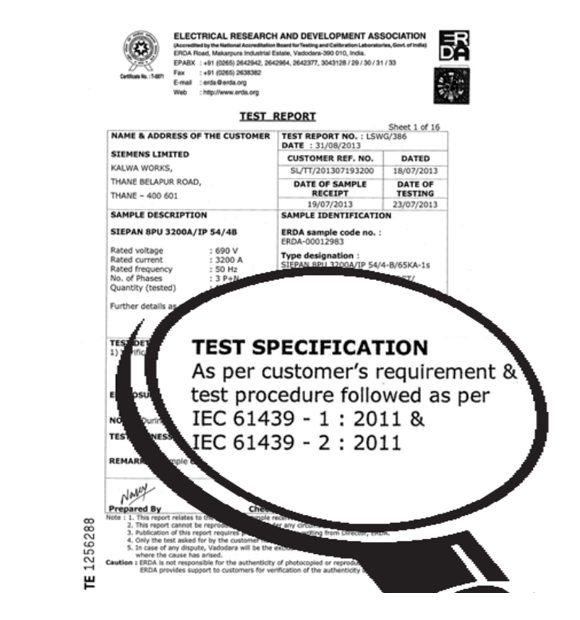SIEPAN 8PU Low Voltage
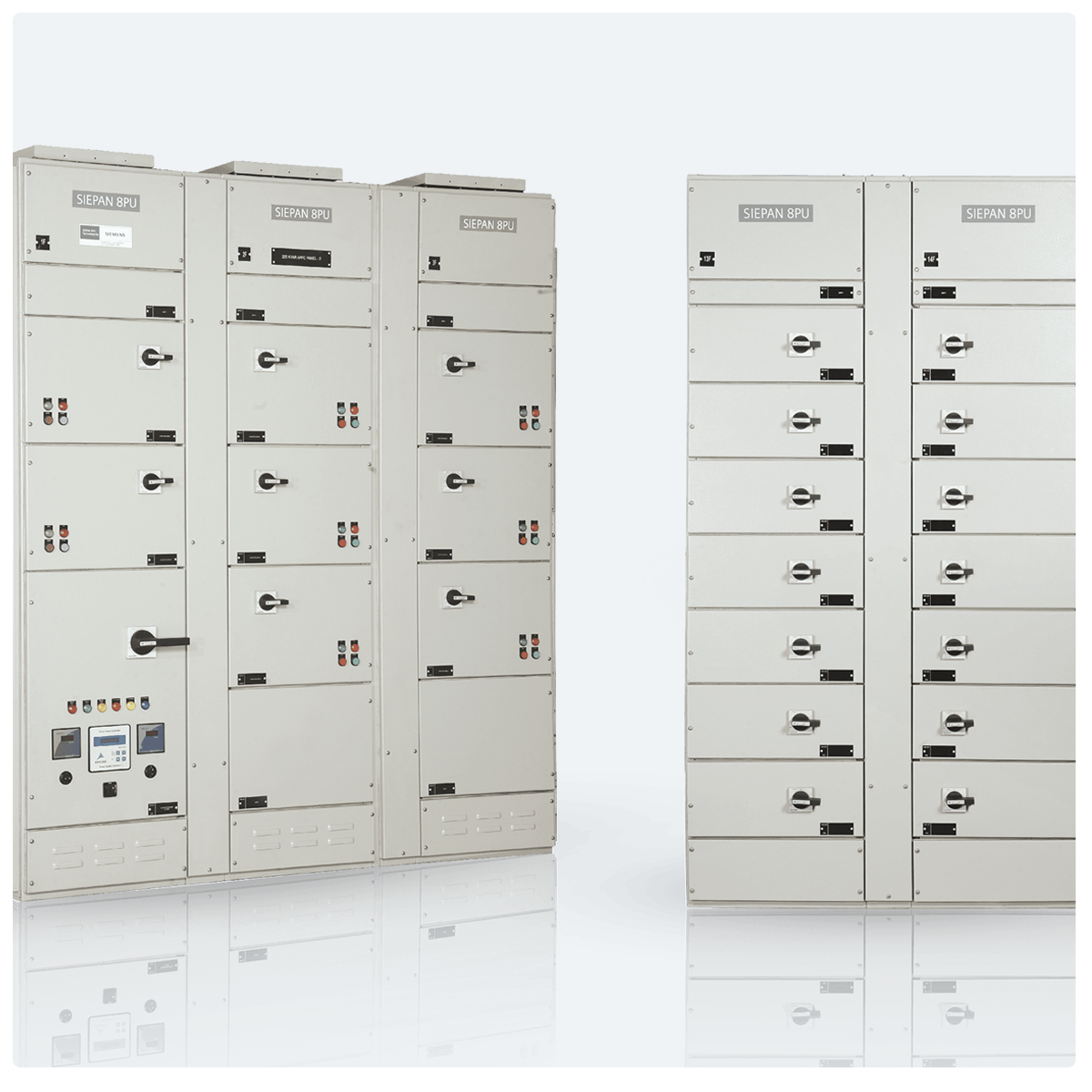
SIEPAN 8PU Low Voltage
Switch boards Technology by Siemens
Siemens 8PU design for low voltage switchboards has
become an industry benchmark with proven performance
for the past many decades.
Designed to operate in challenging conditions of high
ambient & dust 8PU low voltage switchboards have been
patronized by various segments like cement, steel, refinery,
oil & gas, pharma, F&B, data centres, hospitals & hotels,
metro-rail projects having deployed more than 100,000 LV
switchboards for maximum reliability and performance.
This proven technology from Siemens for SIEPAN 8PU®
LV Switchboards is now also available through a network of
Licensed Partners across the country.
Customer benefits at a glance:
• Siemens innovation & technology
• Maximum reliability in protection of your plant and equipment
• Maximum safety for operating personnel
• Suited for the most arduous site conditions
• Compact and space saving
• Extensive License Partner network across the country

Highlights:
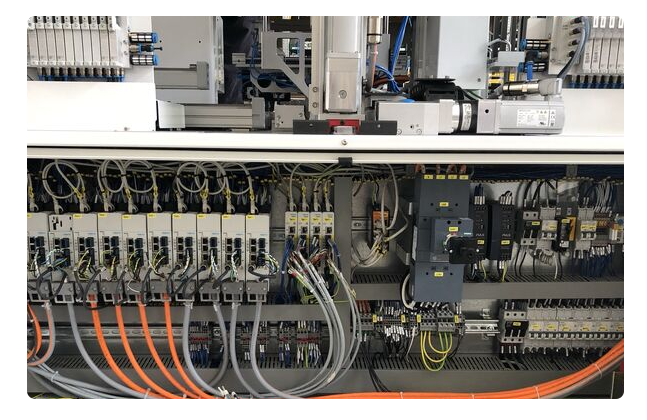
• Conformance to Type Tested assemblies (TTA)
• Conformance to Seismic withstand upto Zone V
• Conformance to Internal Arc Containment (IAC)
• Fully compartmentalized, bolted & modular design for PCC & MCC
• Non-compartmentalized drive control panels
• Non-compartmentalized APFC panels
RANGE:
• Power control centres
• Communication capable intelligent power control centres (IPCCs)
• Withdrawable motor control centres with patented Alstan® bus-bar technology
• Energy management PCCs for Plant & Building
• Motor control centres – Fuseless and with Fuse
• Intelligent motor control centres (IMCCs)
• Integrated PMCCs for Ethernet connectivity
• Automatic power factor correction panels
• All variants available with a choice of aluminum and copper for bus-bars
• Degree of ingress protection upto IP 54 for all ratings
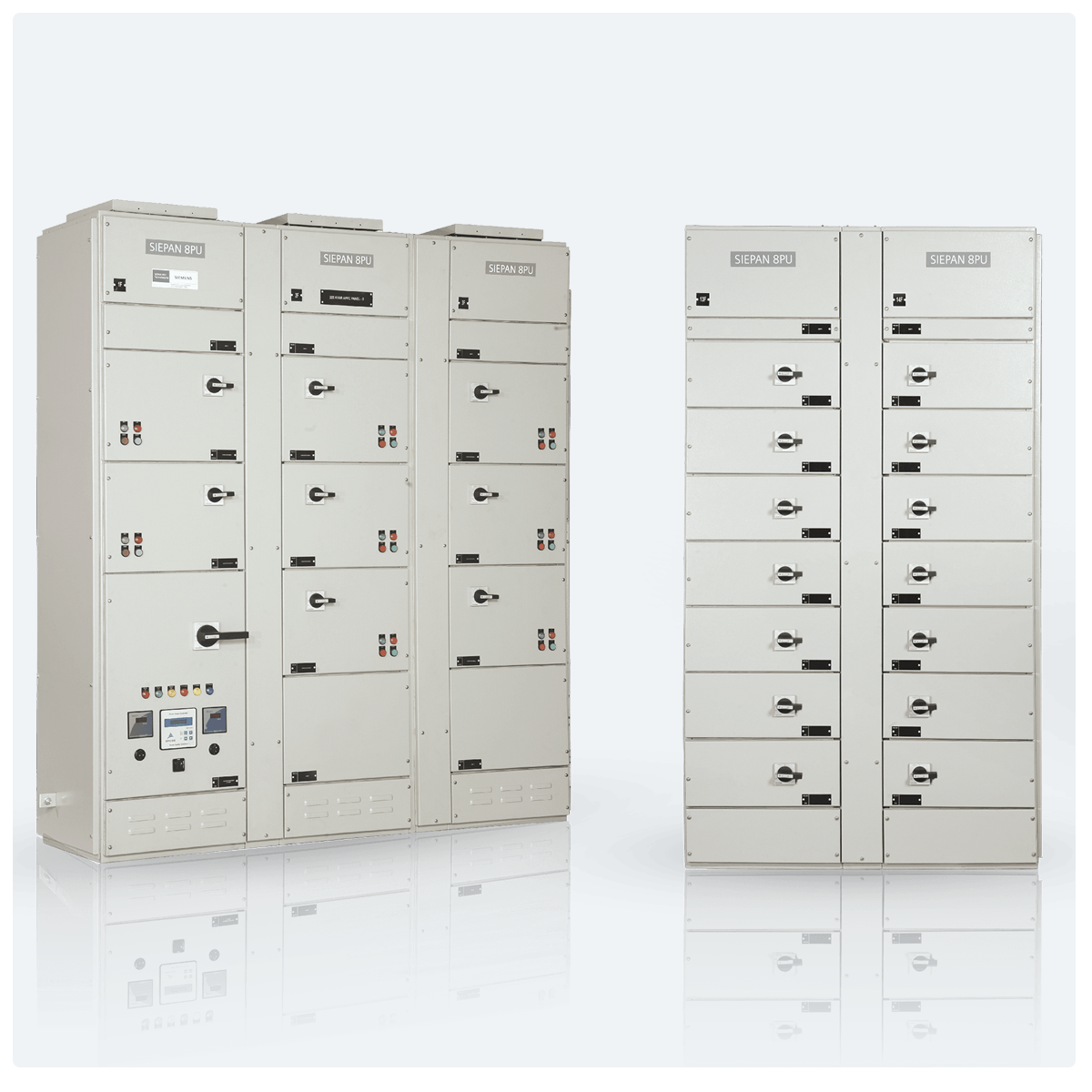
SIEPAN 8PU – Range & dimensions at a glance
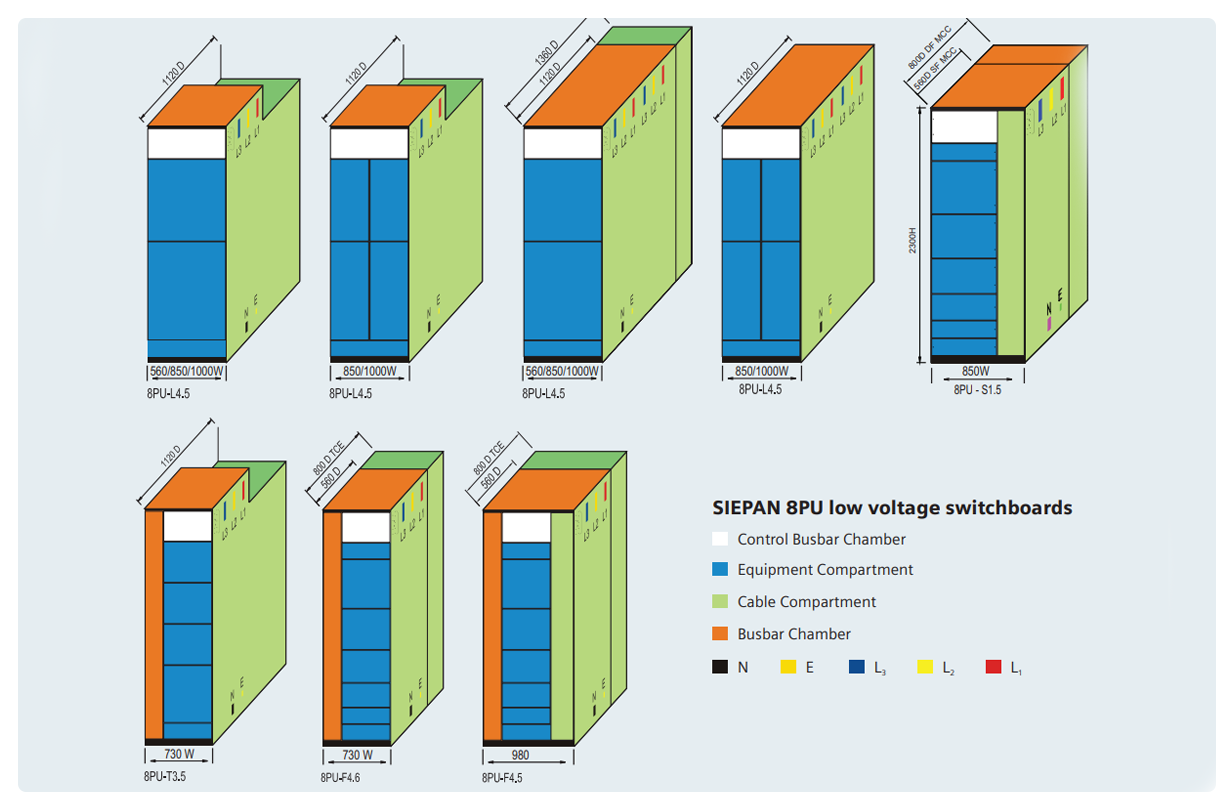
Brand and Technology nameplates
SIEPAN 8PU LV switchboards manufactured by licensed
partners come with brand and technology nameplates
affixed to the switchboards qualifying them for top class
design innovation from Siemens.

Brand and Technology nameplates
SIEPAN 8PU LV switchboards manufactured by licensed
partners come with brand and technology nameplates
affixed to the switchboards qualifying them for top class
design innovation from Siemens.
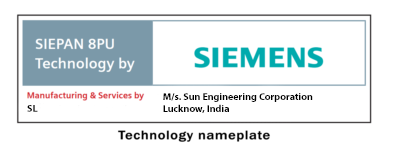
| Conformance to standards | IS8623-1 / IEC 439 |
| Internal Arc Containment | IEC 61641 |
| ESeismic withstand | IS 1893 |
| Short circuit withstand (Icw) – main bus | 65kA / 1sec / 143kA peak |
| Short circuit withstand (Icw) – earth | 39kA / 1sec / 82kA peak |
| Degree of protection (IP) | IP 4X, 5X, X3, X4 |
| Ambient temperature | 40º C / 45º C / 50º C |
| Temperature rise | As per IEC 61439 -2 |
| Seismic conformance test | Zone III & V |
| Rated insulation voltage | upto 1000V |
| Rated operational voltage | upto 690V |
| Rated impulse withstand | 8kV |
| Rated impulse withstand | 8kV |
| Main busbar rating | upto 5000A |
| Busbar execution | Interleaved / non-Interleaved |
| Busbar options | Copper / aluminium |
| lnfeed termination | Cable / bus ways / busduct |
| lnfeed entry | Top / bottom |
| Cable feeder access | Front / rear* |
| ACB cubicle | Single tier |
| Form of seperation | upto form 4B |
| Standard height | 2300mm |
| Standard depth | 1120mm / 560mm |
| Standard colour shade | RAL 7035 |
SIEPAN 8PU is totally type tested (TTA) for its design reliability as per IS 8623 – 1 / IEC 439.
Type tests:
1. Verification of temperature rise limits
2. Verification of di-electric properties
3. Verification of short-circuit withstand
4. Verification of continuity of protective circuit
5. Verification of clearances and creepage distance
6. Verification of mechanical operation
7. Verification of degree of protection
Special test
1. Verification of seismic withstand for zone III / V
2. Verification of internal arc containment (IAC)ge distance
6. Verification of mechanical operation
7. Verification of degree of protection
Routine tests:
1. Inspection of wiring and electrical operation
2. Verification of insulation
3. Verification of protective measures and continuity of protective circuits
4. Verification of insulation resistance
